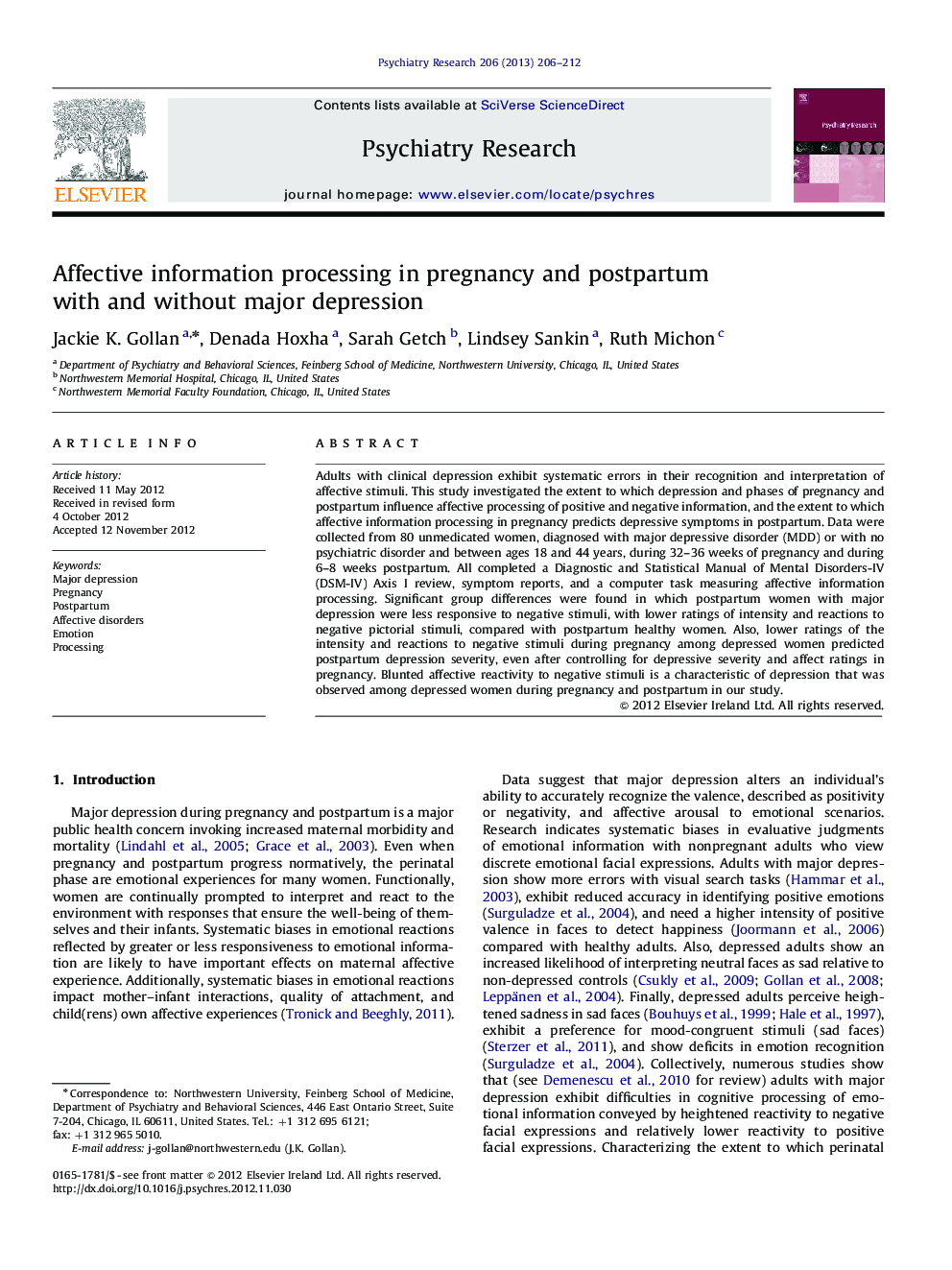| Article ID | Journal | Published Year | Pages | File Type |
|---|---|---|---|---|
| 331956 | Psychiatry Research | 2013 | 7 Pages |
Adults with clinical depression exhibit systematic errors in their recognition and interpretation of affective stimuli. This study investigated the extent to which depression and phases of pregnancy and postpartum influence affective processing of positive and negative information, and the extent to which affective information processing in pregnancy predicts depressive symptoms in postpartum. Data were collected from 80 unmedicated women, diagnosed with major depressive disorder (MDD) or with no psychiatric disorder and between ages 18 and 44 years, during 32–36 weeks of pregnancy and during 6–8 weeks postpartum. All completed a Diagnostic and Statistical Manual of Mental Disorders-IV (DSM-IV) Axis I review, symptom reports, and a computer task measuring affective information processing. Significant group differences were found in which postpartum women with major depression were less responsive to negative stimuli, with lower ratings of intensity and reactions to negative pictorial stimuli, compared with postpartum healthy women. Also, lower ratings of the intensity and reactions to negative stimuli during pregnancy among depressed women predicted postpartum depression severity, even after controlling for depressive severity and affect ratings in pregnancy. Blunted affective reactivity to negative stimuli is a characteristic of depression that was observed among depressed women during pregnancy and postpartum in our study.
